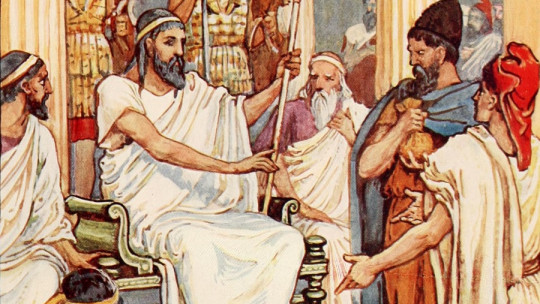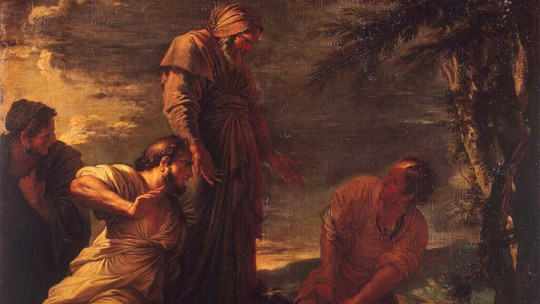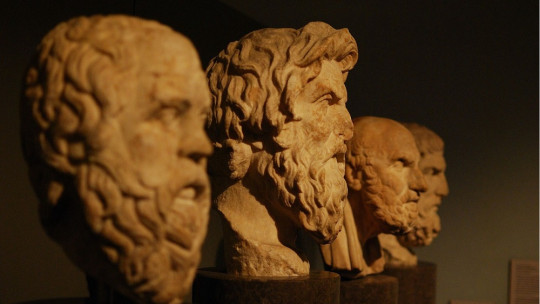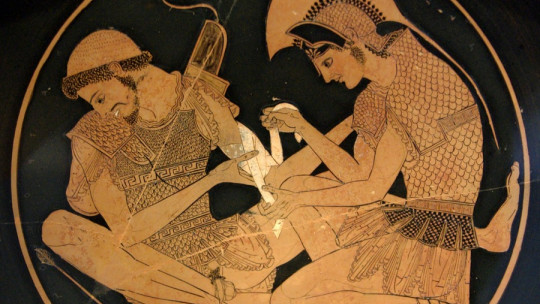
Greek democracy is the system of government considered the basis of modern democracies especially those that are current in Western countries.
It emerged in ancient Athens, back in the distant 6th century BC, although it had very marked differences compared to our modern idea of what is democratic. Below we will see in more detail how it worked and who had the right to participate.
The democracy of Ancient Greece
The origin of our modern democracies has traditionally been attributed to the emergence of Greek democracy Actually, the most appropriate way to refer to this system of government is Athenian democracy, given that it emerged in the city-state of Athens, which is the one about which we have the most information. This same democracy was the one that served as a model for other polis.
The word “democracy” comes from the classical Greek “démos”, “people” and “krátos”, “government, power”, meaning “the power of the people”. Although today democracy is the most widespread system of government in Western countries, taking roots in ancient Athens, there are many differences between Greek democracy and today’s democracy. In fact, Athenian democracy is very far from what we would consider a full democratic system.
History and origin of democracy
Before the arrival of democracy, the city of Athens was ruled by the aristocracy and had gone through different governments that, in essence, could be considered monarchies, oligarchic dictatorships and tyrannies.
This changed at the beginning of the 6th century BC. C. thanks to Solon, an Athenian statesman who instituted a series of reforms with which he imposed the foundations of Hellenic democracy, although it should be said that his reforms were counteracted with oligarchic governments after his death.
However, it was at the end of that same century when Greek democracy itself was established, thanks to the reforms of another ruler, Cleisthenes It was this politician who broke the power that aristocrats exercised in making political decisions. He changed the form of government, making decisions made by reorganizing the Athenians into tribes based on where they lived, rather than based on their wealth.
The merit does not belong solely to Solon and Cleisthenes. Ephialtes and Pericles also made important contributions to the development of Greek democracy during the 5th century BC The background context was that the Athenians were victorious fighting against the invasions of the Achaemenid Empire, perpetrated by Xerxes. It was these victories that motivated the poorest sections of the Athenian population to give their opinion and want more rights, demanding a greater participation in political power. This was granted by the reforms of Ephialtes and Pericles during the 460s BC. c.
Political organization
Similar to what happens today, Greek democracy was made up of three governing bodies: the Ekklesía, the Boule and the Dikasteria.
1. The Ekklesia
The Ekklesía, also known as the Assembly, was the main and sovereign body of the Athenian government. This institution would be comparable to that of current parliaments in modern democracies the legislative power of the time. The members of the Ekklesía were not elected.
In this institution laws were decided, magistrates were elected and the procedure for war and peace was agreed upon. Attendees could speak freely, although very few tended to do so, and voted by show of hands or by putting a white or black stone into a ballot box. It was a direct and non-representative democracy.
Any adult male citizen, over the age of 20, could participate and, in fact, all free men were expected to do so at their meetings. The Ekklesía was an exclusive club, and women, slaves and foreign residents were prohibited from participating
Any individual who wanted their voice and vote to be heard had to attend the meeting place in person. Being on military service or simply outside the city of Athens made it impossible to be part of the democratic process, given that voting by mail did not exist.
Given the great privilege and luck involved in being chosen, not wanting to attend the Ekklesía was not well regarded. In fact, Those who were invited and did not go were known as “idiotai”, in the most literal and classic sense it means something like “private citizen.” This word is the etymological origin of “idiot”.
2. La Boule
The second institution was the Boule, also known as the Council of Five Hundred, which would exercise executive power. The main objective of this institution was to carry out the practical power of the government, meeting frequently to decide what topics would be discussed in the Ekklesía
It consisted of a council made up of 500 men. These came from the 10 Athenian tribes, who sent 50 men each to be represented at the Boule. These men were selected by lot. The men chosen were to serve on the council for one year.
3. The Dikasteria
The Dikasteria were the popular courts, serving as judicial branch of ancient Athens He had 500 men like la Boule, who were known as jurors and were also selected by lot. To be eligible as a juror you had to be over 30 years old.
However, anyone over the age of 20 could present their disputes in the Dikasteria, bringing cases before the court, and defending the accusation or defense. Verdicts and sentences were approved by majority rule.
The end of Greek democracy
The years when Athens was a democracy are known as its golden age. However, the enmity with Sparta, another Hellenic power, and the wars with that polis weakened Athenian institutions. Athens had allied itself with many cities of the Aegean Sea, which had to pay tribute. Sparta used this as a reason for war, besieging Athens. To make matters worse, the plague devastated Athens, and Pericles himself died.
Despite all this, Greek democracy remained alive for almost a century, even after the end of the Peloponnesian War and the defeat of Athens Democracy lasted until 322 BC. C., the year in which Macedonia finally ended all democratic institutions.
A democracy unthinkable today
Greek democracy has often been idealized. There are many who see it as the perfect form of government, while current democracies are seen as corrupt and not very functional. However, taking into account the denial of the right to vote to women and foreigners, this makes the balance clearly fall in favor of our modern democracies. Besides, the mere existence of slavery makes the state that allows it and even benefits from it anything but democratic
There is no doubt that Greek democracy was a great development in the history of Western civilization, and that current democracies take many elements from it, but in its most advanced and humanistic form. Furthermore, and as surprising as it may be, at the time there were also voices who were critical of the conception of what was democratic at the time. Philosophers like Plato and Aristotle saw flaws in this system of government.
For example Aristotle, in his “Politics,” wrote that democracy is the perverse form of a regime called government In this system the highest priority was to benefit a few, while the benefit of the majority was a matter left to the last minute. In essence, it was not a true democracy, but another oligarchy that cared only for those in power.
Criticism of this system of government can also be found in Plato’s “Republic.” Plato considered that offering the positions of the Ekklesía, the Boule and the Dikasteria by lot It implied that many government positions would be occupied by people who did not have the capabilities of a good ruler Furthermore, he criticized the figure of the radical democratic person, who in his search for maximum freedom, takes away the rights of others.








